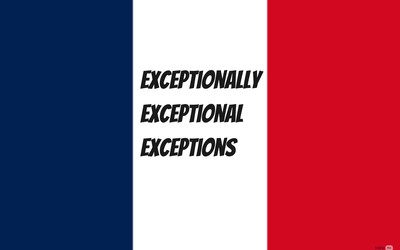
The Art of Puns
I had this blog in my drafts, so I decided to finish it and post it!Hello everyone and welcome!
Have you ever watched funny humoristical sketches in Daily-motion? Have you felt pure daily motion of humour? Well in this blog, I will instruct you to make similar amazing rotten puns. Let's go!
The difference between a pun, a joke and a reference:
Many people think the two first ones mean the same thing, but it's actually not the case:
- A pun is a hilarious combinations/scramble of words and letters that are mixed in a funny way. It is inserted in the middle of a conversation between 2 or more people.
- A joke is a hilarious sentence that contains a special hidden meaning to make people laugh. It needs the listening to everyone in the conversation to be laughable.
- A reference or a meme is a hilarious sentence/image/ that hides a story/reference only people knowing the subject of the conversation can understand.
| Pun / Wordplays | Joke | References / Memes |
|---|---|---|
| - Scrambled letters/words- Needs only subject of conversation | - Whole sentences- Needs context and related to subject | - Both- Needs only subject of conversation |
| Context: You and your friends are talking about languages, when you got an amazing pun:-Boy, french is so hard, it has those complicated rules.-France-ly speaking, just accents are a nightmare. | What do houses wear? A dress. |  |
Knowing the difference between the three is essential. You must understand how you can make puns and know them like the bottom of your pocket.
Step 1: Know what the subject of the conversation is about:
When you're in a conversation with other people or friends, you first need to understand what others are talking about. Obviously I can't give you every single scenario, but here are a few examples:
-Talking about gastronomy and eating, you can mix the expression "it will be a piece of cake".
-Talking about chess, a "knightmare" and "czech-mate" are very famous ones.
-When a barber is working, you can tell them the Barbers riddle: In a town, there are 2 barbers: the first one makes nice haircuts with good prices, and the seconds ones makes delightful haircuts with high prices. One day, a man entered the town, knows about both barbers and their reputations, decided to go to the bad barber. Why? The answer: The man is the good barber, he went to the bad barber because he can't cut his own hair.
You can think about a pun/jokes/riddles while others are discussing, or if you already have one in mind, you need to introduce it smoothly. That's when you need to follow:
Step 2: Introduce your wordplays / jokes:
This step is urgent, because if you don't do it correctly, they might underestimate your true puntential. When introducing a wordplay, the first thing you need is the moment. It's when everybody is silent, or it's your turn to talk.
The second thing you need is the sentence where you're going to put it. Don't ever, for any reason, do anything, to anyone, for any reason, ever, no matter what, no matter where, or who, or who you are with, or where you are going, or where you've been, ever, for any reason whatsoever, say your pun like that in the air like a fly escaped from your mouth without suspense except with good reason (like France-ly speaking earlier). Tell them a rhetorical question or an exclamation then spit it out.
Conclusion:
A conversation is a curious place where only your tongue and your honor will save you. Laugh and the whole world laughs with you, I don't need the second part of the proverb.
I hope you enjoyed this blog, please click the like button and give feedback in the comments, as I ran out of ideas and time for big blogs, and see ya!
More blog posts by WassimBerbar

How to write a book!
The simple beginner's editor guide to story-telling!
How to learn the French language!
Everybody knows the iconic "En passant" in chess, I will explain its meaning and more in this blog!
How to translate a document into any language!
A basic introduction on how to translate texts into the languages you know!
